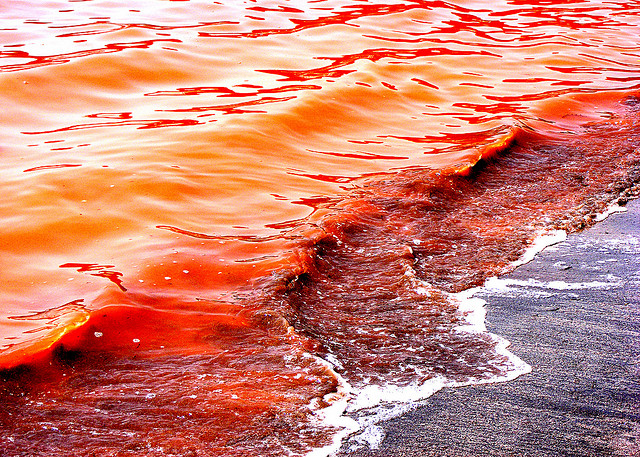FWP:
SETS == EK; EXCLAMATION; FILL-IN; MUSHAIRAH
Bekhud Mohani suggests that this verse should be interpreted in the light of the bloody events of 1857, and indeed that's an obvious thing for any 'natural poetry' fan to propose. The problem of course is that the ghazal was composed in 1853, as Ghalib himself specifically notes (see {208,1}). But the temptation is easy to understand, since the verse seems well suited to the events of 1857, and Ghalib quotes it in a bleak letter written in 1858. For more on the problems of 'natural poetry', see {66,1}.
Here then is a textbook case of the ghazal's unique versatility: its imagery of passion, suffering, endurance, intoxication, defiance, death, and transcendence can fit into many kinds of individual human emotional life (or collective human political situations), and the two-line scope of each verse is so brief that limiting or realistic details are extremely rare. How could the ghazal not be versatile, and why would its poets not take full advantage of the many chances to make it as much so as possible?
The present verse starts us off with a shocking and powerful image: a 'Red Sea' of blood is roiling or 'wave-striking'; the speaker tells us; he then goes on at once to wish, literally, 'if only/emphatically this would be!'. The italicized 'this' is yihī , made from yih plus the small but crucial particle hī , which can be either restrictive ('this alone, and nothing else') or emphatic ('especially, particularly this'). Either reading we might choose seems very peculiar when juxtaposed directly to the vision of a roiling ocean of blood. In traditional mushairah performance style, we'd be left to wonder and speculate for as long as could conveniently be managed, before being allowed to hear the second line.
The second line offers an even more sinister focus for our attention, one that we don't really grasp until the final, ominous kyā kyā . What could be more terrible than a roiling sea of blood? What else but that kyā kyā , with its dark unknownness? I've shown it as 'what-all', a traditional Southernism, because it's hard to show a pluralized 'what' in English while still retaining the singular verb of the Urdu. Whatever is coming, it seems to be coming as a whole made of many parts, a series of somethings that are envisioned (grammatically and semantically) as a collective entity.
As we now mentally revisit the first line, that little ik ('one', 'a single') seems to almost glow in the dark. It can, of course, mean a range of other things-- the verse could be referring to a 'particular' or 'excellent' or 'unique' sea of blood. But in any case, what could be worse than 'one' sea of blood? Two seas of blood, of course-- two or more. Seas that are both singular, particular, unique, and also full of plural sequences of roiling waves. Or if we prefer, the ik can work dismissively, like those in {208,2}. Why even bother about merely 'one' little sea of blood, when what looms on the horizon is so inexpressibly much worse?
The doubly inshāʾiyah form of the verse gives it exclamatory force. And as a 'fill-in' verse, it gets most of its power from the private meaning with which each reader inevitably invests it. In this respect, it works very much the way {191,8} does. It reminds us of situations in which the only thing more terrible than the present is the imminent, looming future.
Compare Mir's form of ominous verse about the future: M{71,1}; and his form of ominous blood imagery: M{100,7}.

Ghalib:
[1858, to Majruh:] Having heard about your mother's death, I felt much grief. May the Lord give you endurance, and bestow [forgiveness] on that virtuous one. My full brother, Mirza Yusuf Khan the mad one, has also died.
What kind of a pension, and from where can I get it?! As for me, I've given up on my life: {208,12}. If I live long enough, and sit down with you again, the story will be told. (333)
==Urdu text: Khaliq Anjum vol. 2, p. 491
==another trans: Russell and Islam, pp. 160-61